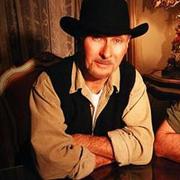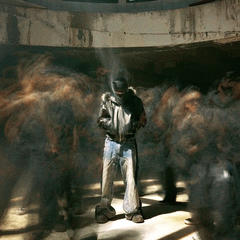Dan Seals
DAN SEALS (1948~2009) 丹席尔斯(Dan Seals)用「英格兰丹」(England Dan)的艺名跟约翰福特寇利(John Ford Coley)搭档,两人融合了乡村与摇滚的抒情曲风,在70年代的后半段可说是红透了半边天,不仅获得成年歌迷的喜爱,连青少年也同样为他们疯狂。他们陆续又唱红了「Nights Are Forever Without You」、「Soldier In The Rain」、「We'll Never Have To Say Goodbye Again」和「Love Is the Answer」等歌曲。可惜的是,由于无法继续有所突破,这对搭档终于在1980年宣告分手。丹席尔斯先是以「英格兰丹」的名义单飞,推出首张个人专辑「Stones」,但没有引起太多注意。1981年,他遭到国税局欠税的指控,诉讼的结果,他几乎失去了所有的财产。1982年,他发表第二张专辑「Harbinger」,虽然同样获得很高的评价,销路却更惨澹,因此他决定改走乡村的路线,并且恢复本名,不过在调整风格来适应乡村电台口味的同时,他仍然坚持保有原先柔美的招牌,果然开始有了起色,接连两张专辑,都打入乡村排行前四十名。1984年,他获得Capitol唱片的合约,成绩更进步,连续以「(You Bring Out) The Wild Side of Me」和「God Must Be a Cowboy」打进乡村单曲前十名。 1985年,丹席尔斯的好运接连来到,在获得亚军的「My Baby\\\\'s Got Good Timing」和第九名的「My Old Yellow Car」之后,他跟玛丽奥斯蒙(Marie Osmond)合唱的「Meet Me in Montana」造成了空前的轰动,不但首度为他夺下冠军、揭开连续九首冠军的序幕,更因而在1986年荣获乡村音乐协会的「年度最佳二重唱」大奖,就此跻身乡村歌坛超级巨星之林,而「Won\\\\'t Be Blue Anymore」也成了他毕生最成功的录音室专辑,除了登上乡村冠军宝座,还镀上了白金。 「Won\\\\'t Be Blue Anymore」专辑带来的好运还不仅此而已,接在「Meet Me in Montana」之后推出的「Bop」,成了丹席尔斯首度以个人独唱姿态夺得冠军的单曲,更在乡村音乐协会大奖夺下「年度最佳单曲」的荣衔。接着,由他亲自跟德州同乡鲍布麦迪尔(Bob McDill)联手撰写的「Everything That Glitters (Is Not Gold)」,探讨一个牛仔竞技场明星必须面临独自抚养孩子长大的困扰,同样也夺下乡村冠军。到了这个时候,他先前几乎破产的阴霾一早已扫而空。1987年的「On the Front Line」专辑带来「You Still Move Me」、「I Will Be There」和「Three-Time Loser」等另外三首冠军。同一年,他推出首张精选集,特别把原先收录在「San Antone」专辑中的「One Friend」重新录制,又增添了另外一首冠军。 丹席尔斯的好运持续来到。1988年,他推出「Rage On」专辑,又以「Addicted」和「Big Wheels in the Moonlight」夺下两个冠军。1990年,第八张专辑「On Arrival」的首支单曲「Love on Arrival」夺下连续三周冠军,跟在后面发表的「Good Times」,是翻唱已故黑人歌手山姆库克(Sam Cooke)的经典,虽然也拿到冠军,但他的好运似乎已经接近尾声,从此他不但跟冠军绝缘,甚至连前四十名都打不进去了。1991年,在葛司布鲁克斯(Garth Brooks)等新生代歌手快速崛起、改变了乡村歌坛的生态后,丹席尔斯有点落寞的转移到华纳旗下,但推出的五首单曲只有三首进榜,而且都没有进入前四十名,当然专辑也无法上榜。90年代的其余时间,他只能到处巡回,吸引一些昔日的老歌迷,虽然陆续出过几张专辑,但唱片公司的规模一家比一家小。到了后来,连上天也开始跟他作对了,他罹患了「被套细胞淋巴癌」,开始进行治疗,甚至在2008年十二月接受了干细胞移植的手术。2009年三月二十五日,他病逝于女儿的家中,享年六十一岁,令人惋惜。by Steve HueyAfter scoring several hits as part of the soft rock duo England Dan & John Ford Coley, Dan Seals reinvented himself as a country-pop singer and enjoyed a tremendous run of success during the latter half of the 80s. Born in McCamey, TX, in 1948, his brother was Jim Seals, later of another successful soft rock duo, Seals & Crofts. Both brothers played with their parents in the Seals Family Band, with Dan learning string bass; however, after their parents divorced, Dan spent several years moving around with his mother. They eventually settled in Dallas in 1958, and Seals spent his teen years playing in garage bands, where he first met John Ford Coley. They worked together in a band called the Shimmerers, which recorded some demos in 1965 and became the Southwest F.O.B. two years later, scoring a chart single with The Smell of Incense. Seals and Coley left to form a duo in 1969 and kicked around for a while, landing an early-70s deal with A&M that went sour. They finally hit big in the late 70s, with soft rock touchstones Id Really Love to See You Tonight and Nights Are Forever Without You ranking as their best-known singles.Seals went solo in 1980, signing with Atlantic and keeping the name England Dan for his debut album, Stones. In 1981, he underwent a grueling battle with the IRS that cost him nearly everything he owned. His follow-up album, Harbinger, stiffed, and he turned his attention to country music, adapting his style to fit the demands of country radio while still keeping his signature soft sound. Signed to Liberty/Capitol, he scored a pair of Top Ten hits on the country charts in 1984 with (You Bring Out) The Wild Side of Me and God Must Be a Cowboy. My Old Yellow Car and My Babys Got Good Timing had similar success in 1985, and his next single, a duet with Marie Osmond called Meet Me in Montana, went all the way to number one. It also kicked off a spectacular run of nine straight chart-toppers: 1986 brought Bop and Everything That Glitters (Is Not Gold); 1987 saw I Will Be There, Three Time Loser, and You Still Move Me; 1988 featured Addicted and One Friend; and 1989 gave him one more in Big Wheels in the Moonlight. Not only that, he managed two more number ones in 1990, thanks to Good Times and Love on Arrival. However, the arrival of Garth Brooks abruptly changed the country landscape, and Seals found his style out of favor. He moved to Warner Brothers in 1991, without much success, and despite releasing a few recordings on smaller labels in the latter half of the 90s, he was effectively a touring artist for the remainder of the decade.


 科目三(最火版) - 科目三
科目三(最火版) - 科目三






















